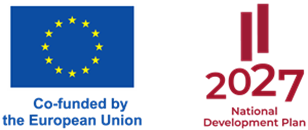Latvian Start-Up Sepsiscan: State Support Opens the Door to International Markets
Attēls: Sepsiscan
Latvian medical technology start-up Sepsiscan is working on an innovative device for diagnosing sepsis and monitoring patient treatment. Founded two years ago, the company is the spin-off of a research project at the University of Latvia and is planning to enter the market in about three years. To achieve this goal, Sepsiscan is actively using various government support tools that have helped it to attract talent and establish international contacts.
“We are a start-up: as soon as the university closed its doors, the greenhouse environment disappeared, and the company started from scratch. Therefore, intensive work was done to attract investment and find support tools,” says Didzis Rūtītis, co-founder and CEO of Sepsiscan, sharing his experience.
One of the most important support mechanisms that Sepsiscan has used is the Start-up Support Programme, which allows start-ups to cover competitive salaries for highly qualified professionals. “Tax incentives have enabled us to pay above-market wages, attracting truly excellent specialists. We have reapplied for this support tool.”
Since its foundation, Sepsiscan has participated in various acceleration programmes, attracted pre-seed funding, benefited from grants and other government support tools, and is actively working to go to market immediately after completing the licensing process. One of the most important steps towards this was participation in Arab Health in the United Arab Emirates, one of the world’s leading medical technology exhibitions.
“The Investment and Development Agency of Latvia (LIAA) covered the costs of participation and stand production, which is already a huge help. But even more important was the organisational support: LIAA representatives helped to establish contacts and organise meetings with potential partners before the trade fair. We arrived at the expo with a full calendar of meetings with companies that matched the specifics of our work,” Mr Rūtītis explains.
Participation in Arab Health provided the company with valuable contacts. “As a result, we have opportunities to work with distributors in eight countries in the region who would be interested in purchasing the technology as soon as the device is certified and available for sale. We have also established contacts with representatives of public authorities, which is essential for the implementation of innovative technologies such as standards for healthcare in certain areas,” Mr Rūtītis adds.
Sepsiscan also praises the support of public authorities in other target markets. “In Brussels, they helped us with a grant application; in Germany, they advised us on cooperation with health clusters; in France, they provided us with substantial support in understanding the local market. It is great to have representatives of our national agency in these countries whom you can go to for advice and who can provide practical help," Mr Rūtītis says.
The European Union and the Middle East are the main target markets for Sepsiscan. Germany is a particular focus, as it is home to around one third of Europe’s hospitals with intensive care units. The Middle East market is open to innovation and demand for new medical technologies is high.
This article has been produced with financial support from the European Regional Development Fund
